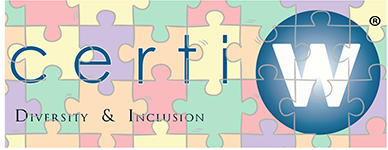
**Remote Auditing: A New Paradigm for Management System Verification**
In recent years, the traditional approach to audits has undergone a significant transformation, accelerated by the global COVID-19 pandemic. The introduction of remote auditing practices is one of the most relevant outcomes of this evolution, enabling organizations to leverage digital technologies to conduct audits without the need for auditors’ physical presence. This innovative methodology has led to substantial improvements in operational efficiency and has opened new opportunities, but it has also raised unique challenges.
### Regulatory Recognition
In response to the need for modernization, the technical specification ISO/IEC TS 17012 was developed by ISO and IEC. This document provides detailed guidelines for using remote auditing methods applicable to any type of organization, for both internal and external audits. ISO/IEC TS 17012 is a response to the demand for structured and sustainable solutions in increasingly digitized business environments.
### Why Choose Remote Auditing?
Remote auditing utilizes tools such as video conferencing, document sharing platforms, and dedicated software, allowing companies to effectively conduct audits without geographical limitations. This mode not only facilitates the verification of business processes but also offers numerous advantages over traditional on-site visits. Among these are a significant reduction in travel costs and increased operational flexibility, enabling audits to be scheduled and adapted more efficiently.
### Challenges to Address
Despite the advantages, remote auditing is not without its difficulties. Organizations must tackle critical issues like data security and the validity of the information collected. It is crucial to implement effective measures to ensure that the information exchanged during the audit process is protected and reliable.
### A Solution for an Agilized Business Environment
As digitalization advances, many companies are embracing work methods that fully leverage the potentials offered by technology. The ISO/IEC TS 17012 specification aims to strengthen confidence in remote auditing methods. It establishes that although this approach cannot completely replace on-site verification, it represents an excellent integration and complementary option in the context of audits, thereby enhancing overall effectiveness.
### Fundamental Principles for Remote Auditing
One of the main purposes of these guidelines is to provide practical support for implementing remote auditing methods while respecting the general principles already established by the ISO 19011:2018 standard. This standard offers a framework for auditing management systems, ensuring that organizations can conduct audits systematically and consistently.
### Objectives of the Guidelines
ISO/IEC TS 17012 aims to ensure that a wide range of stakeholders—such as accreditation bodies, certification organizations, industry professionals, and other interested parties—can trust the use of remote verification methodologies. Part of the mission of these guidelines is to describe the conditions under which remote auditing is feasible, examining not only the potential but also the limitations of these technologies.
### Efficient Implementation of Remote Audit Methods
To maximize the benefits of this methodology, it is essential that organizations establish a systematic approach when implementing remote auditing techniques. This includes selecting appropriate technological tools, training auditors, and creating clear procedures to ensure effective communication flow. It is critical to proactively address potential challenges by planning structures and protocols that allow for the collection of reliable information and maintain the integrity of the audit process.
### Conclusion
In an increasingly digital world, remote auditing offers a viable and valuable solution for companies that wish to remain competitive and agile. The ISO/IEC TS 17012 technical specification represents an important step forward in this ongoing evolution.


